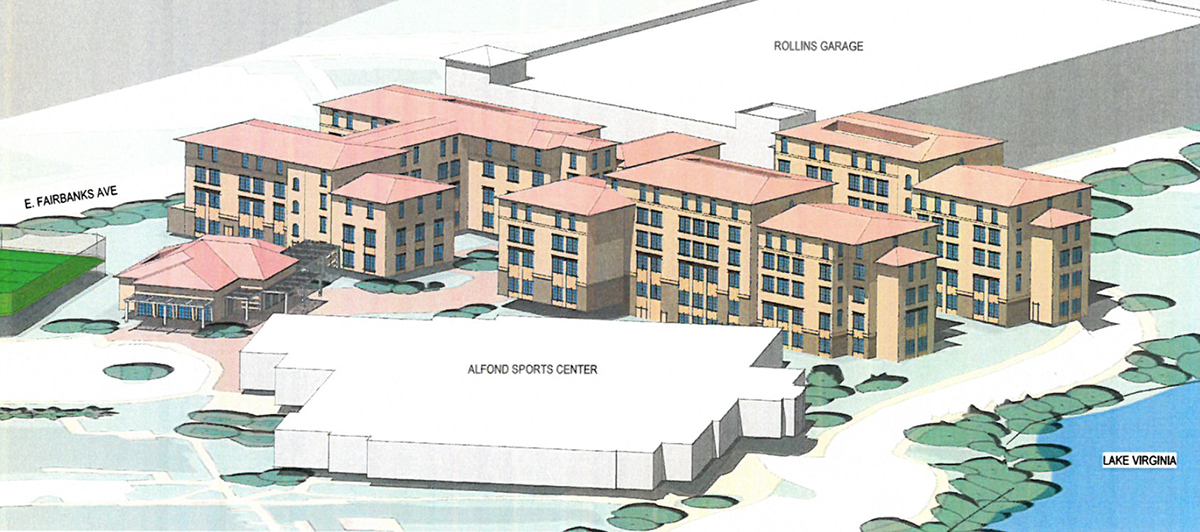Winter Park commissioners approved a rebate plan tied to the city’s gas-powered leaf blower ban during their first meeting of 2024 on Wednesday, Jan. 10. The ordinance banning the lawncare tools passed unanimously in January of 2022 with a 30-month paused enforcement.
Rebates of $50 per residence for the purchase of an electric leaf blower will be funded by the Energy Conservation Fund, and be processed in the same manner as current energy audit rebates. The rebate period will expire on Jan. 1, 2025.
The ban goes into effect in July with penalties served to the homeowner in the same manner as shoreline and tree service violations. Reminders and rebate information will be posted on social media and in press ads, direct mailers will be sent with a perforated notice that residents can give to their lawn service company. According to city administrative coordinator Victoria Taber, staff will help educate Winter Park-based landscaping companies on locating the proper commercial units to aid compliance with the ordinance.
Commissioners Todd Weaver and Kris Cruzada questioned the effectiveness of city outreach on lawn care providers’ compliance, and the logistics of enforcement.
“We don’t plan to be driving around looking for violators,” City Manager Randy Knight said, adding that code enforcement would be dispatched when calls alerting the city of violators are received. “We certainly plan to educate for a while and not cite them for a first offense.”
Commissioner Marty Sullivan was not present at the meeting, but the rebate was unanimously approved by the remaining commissioners.
Seven Oaks Funding
During the Dec. 13 commission meeting, Commissioner Sullivan requested a review of funding for the Seven Oaks Park project as an effort to offset price adjustments caused by inflation.
According to city documents, the project’s guaranteed maximum price stands at more than $4.9 million with $3.4 million provided from the American Rescue Plan Act (ARPA) and $1 million from the city’s parks acquisition fund. A total of $168,000 has currently been spent, leaving $4.2 million in available funds and a deficit of approximately $800,000.
At the Jan. 10 meeting, Knight presented a plan suggesting the reallocation of $550,000 in ARPA funding, previously set aside for park WiFi and planning studies, and $250,000 in General Fund contingency to make up the difference.
“If we don’t use those ARPA funds, we have to allocate them by (the end of) 2024 so, this is a perfect way to use them,” said Vice Mayor Sheila DeCiccio. “Also, the money that is allocated for Seven Oaks just doesn’t go for the park; it goes to the roads, it goes to parking – there’s so much more involved.”
Commission unanimously approved the funding measure.
Rollins Student Housing
Commissioners also approved a conditional use request from Rollins College for an on-campus, 300-bed residence hall to replace the existing 80-bed Holt Hall.
The plan to redevelop the property includes three buildings with a maximum height of 4-6 stories, measuring approximately 139,200 square feet. The additions would require the removal of some trees from the property, but Planning and Zoning Director Jeff Briggs pointed out that new landscape plantings would make up the difference and the 75-foot setback from the lake would leave the tree line at the back of the property intact.
The proposal was previously approved by the Planning and Zoning Board with the caveat that a street-facing maintenance building contain architectural ornamentation, and that a landscape plan be provided for adequate screening.
Briggs also noted the building design took advantage of the grade leading toward the lakeshore with the taller components situated on slopes at the back of the property. However, the continuation of the pitched roof design used throughout the campus puts the highest roofs approximately 10-feet above the city’s 55-foot limit.
Despite exceeding the limit, commissioners agreed that the pitched design hides A/C and mechanical elements that are otherwise set atop a flat roof. “It feels like a pitched roof is a better solution than the flat roof with a parapet and the equipment on top,” Mayor Phil Anderson said.
Commissioner Weaver took advantage of the pitched roofs and southwest-facing site plan to request the addition of solar panels. Though not able to make guarantees, Rollins representatives agreed to investigate the possibility.
Rollins College President Grant Cornwell also addressed commission, stating that the new housing project was not an effort to boost enrollment. “This project is not about growth at Rollins,” he said. “It’s about satisfying the existing demand for students, who we already enroll, who want to live on campus.”
Vice Mayor DeCiccio mentioned comments from neighbors in support of student housing outside of residential neighborhoods. “For any number of reasons, the residents and neighbors are thrilled to get your students back on campus.”
The project was the first of two Rollins housing proposals under consideration. An off-campus apartment building for faculty and staff is planned on college-owned properties at 273 W. New England Ave., 262, 308 and 316 W. Welbourne Ave., and 210 S. Virginia Ave. A public hearing for the proposal, previously scheduled for the Jan. 9 Planning and Zoning Board meeting, has been rescheduled to Jan. 17 at 6 p.m. in City Commission Chambers.
For more information on city meetings and to register for online access, log onto cityofwinterpark.org/meetings.

